7-11 March 2022, Nairobi , Kenya .The Government of Rwanda vision is to transform the country into a knowledge-based economy, to reach upper middle-income status by 2035 and to become a high-income country by 2050. To align with such aspirations, there is an urgent need to move to more sustainable Solid Waste Management (SMW) which requires new management systems and waste management facilities. Rwanda has prioritized the sector for both medium- and long-term National Development Agenda due to its vital role it plays in preventive health care and quality of life. Its core vision for waste management is to the use of waste as resources with increased value extraction, recycling, recovery, and reuse.
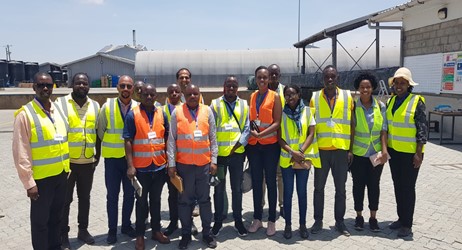
Site Visit to Sanergy’s organic waste valorization plant
The Ministry of Environment is leading a waste to resources project” improving municipal solid waste and hazardous waste management ” in Rwanda. The project is implemented by Global Green Growth Institute (GGGI). GGGI is a treaty based inter-governmental international organization, dedicated to support, and promote strong, inclusive sustainable economic growth into developing countries and emerging economies. The project will be implemented over a course of three years from June 2021 up to July 2024.
The Project has has three outcomes namely:
1) Separation and valorization of organic and plastic waste to minimize waste disposed at Nduba dumpsite in Kigali,
2) Improve collection rate and management of e-waste in Kigali and Secondary cities and
3) improve policy and regulatory environment and enhanced capacity through skills development and knowledge exchange.
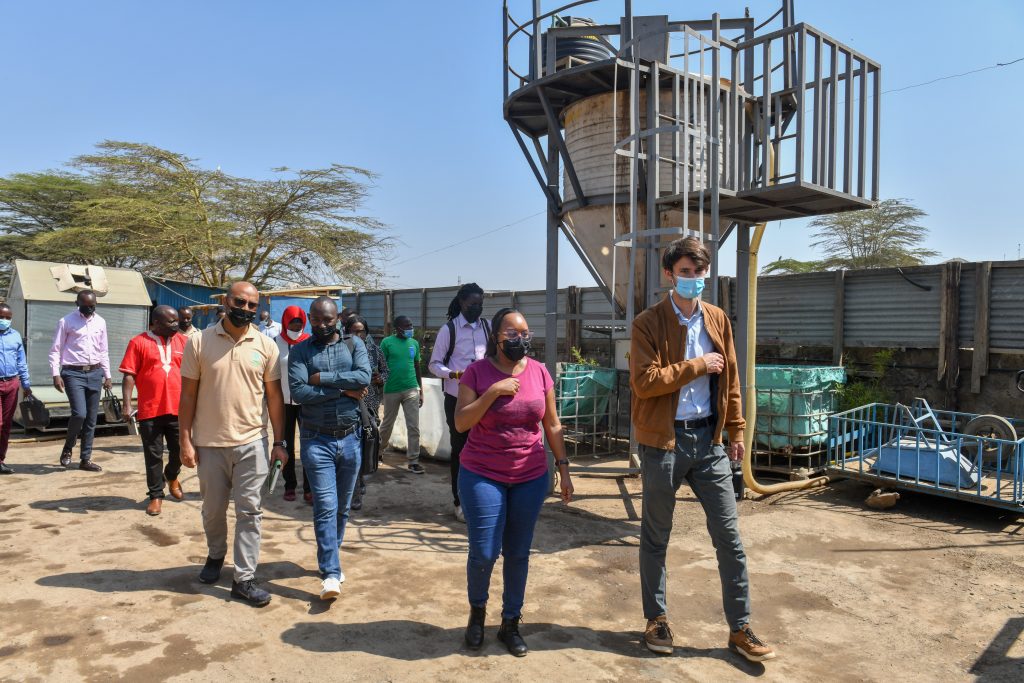
To achieve the project goals, GGGI in collaboration with Sanergy, environmental organization based in Kenya, organized a waste to resources training for key Rwandan stakeholders from various public institutions to learn the best practices for sustainable waste management and waste valorization which can be applied in Rwandan context as part of the work streams of the waste to resources project. The training aimed at strengthening knowledge and skills of the Government counterparts for sustainable waste management across value chain. The training was conducted from 7 March to 11 March 2021. During the training, stakeholders had opportunity to interact with Kenyan counterparts to discuss and share solutions for waste management challenges.
The Rwandan delegation had the opportunity to visits various ongoing initiatives for municipal solid waste management in Kenya including organic waste valorization using Black Soldier Fly, Biogas systems and plastic waste treatment among the others and had series of bilateral meetings with Kenya counterparts to mention Ministry of Environment, Ministry of Industrialization, Trade and Enterprise Development, National Environment Management Authority. Private sector included Kenya Association of Manufacturers (KAM) and Kenya Private Sector Alliance (KEPSA).
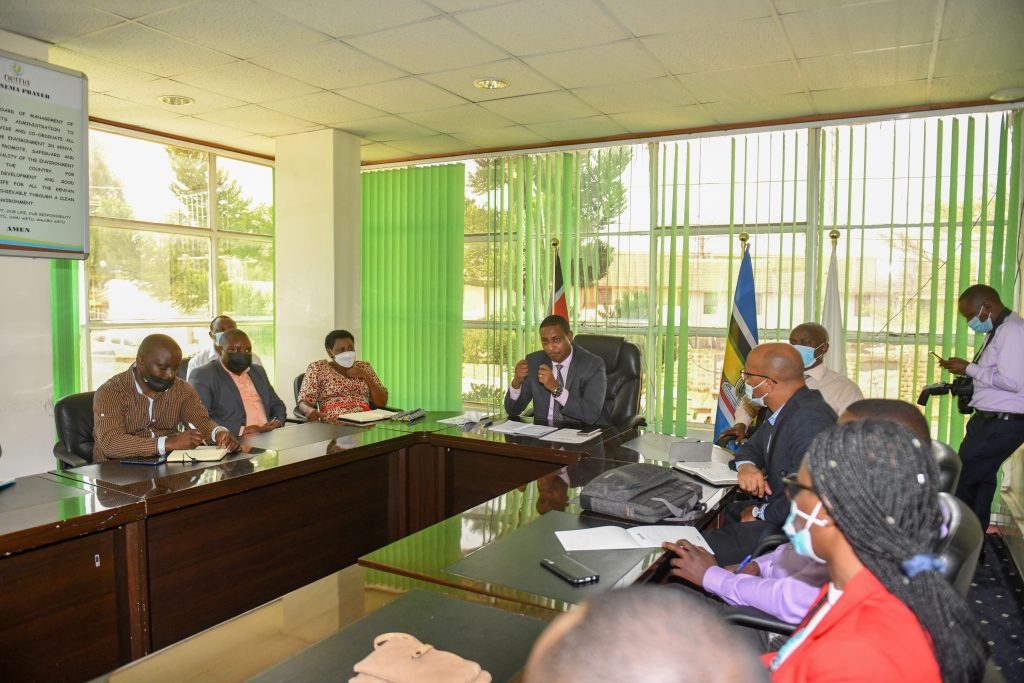
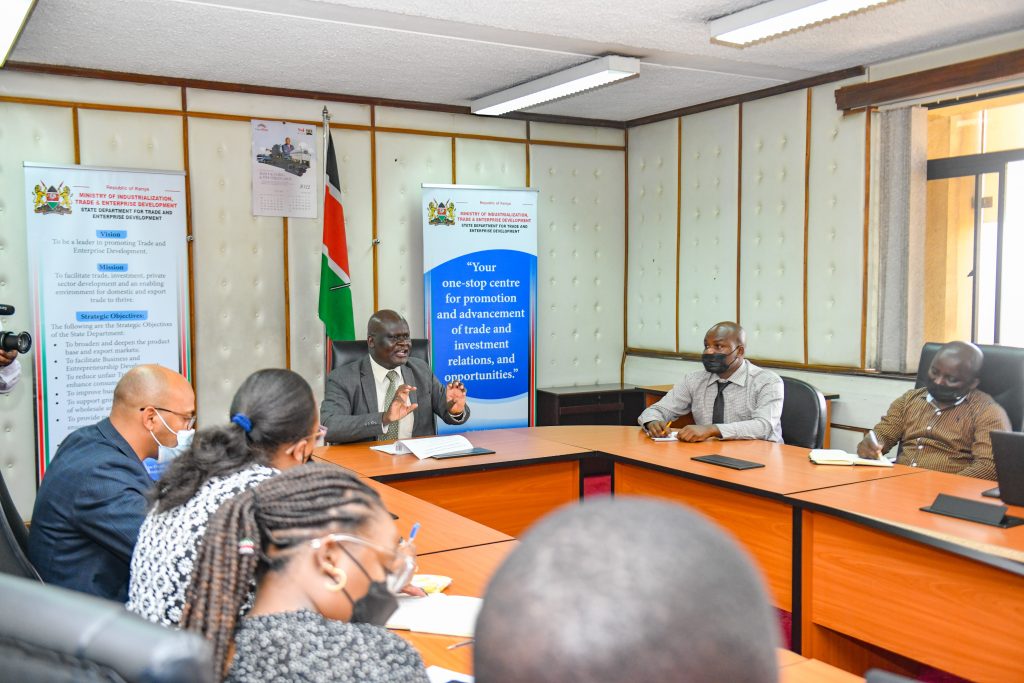
The training was organized to build capacities of the government key stakeholders intervening in waste management sector. These stakeholders are at the heart of the government core vision to transition current business as usual for waste management to integrate circular economy approaches where waste is perceived as a resource with increased value extraction, recycling, recover, and reuse. 11 delegates from Rwanda attended to the training study tour, these delegates included representatives from City of Kigali (CoK) , Ministry of Infrastructure (MININFRA) ,Ministry of Environment (MoE), Ministry of ICT & Innovation (MINICT) ,National Industrial Research and Development Agency (NIRDA) ,Rwanda Environment Management Authority (REMA) , Gender Monitoring Office (GMO) , Rwanda Green Fund (FONERWA) , Rwanda Utilities Regulatory Authority (RURA) and Rwanda Development Board (RDB).
The training was in line with the outcomes of the Waste to Resource project: improving municipal solid waste and hazardous waste in Rwanda led by the Ministry of Environment and implemented by Global Green Growth Institute (GGGI). Kenya was considered as a destination for this training since they are advanced in terms of enabling environment as well as treatment systems of waste management value. The training was organized in collaboration with Sanergy, an environmental based organization, that run the largest organic waste valorization treatment plant in East Africa.
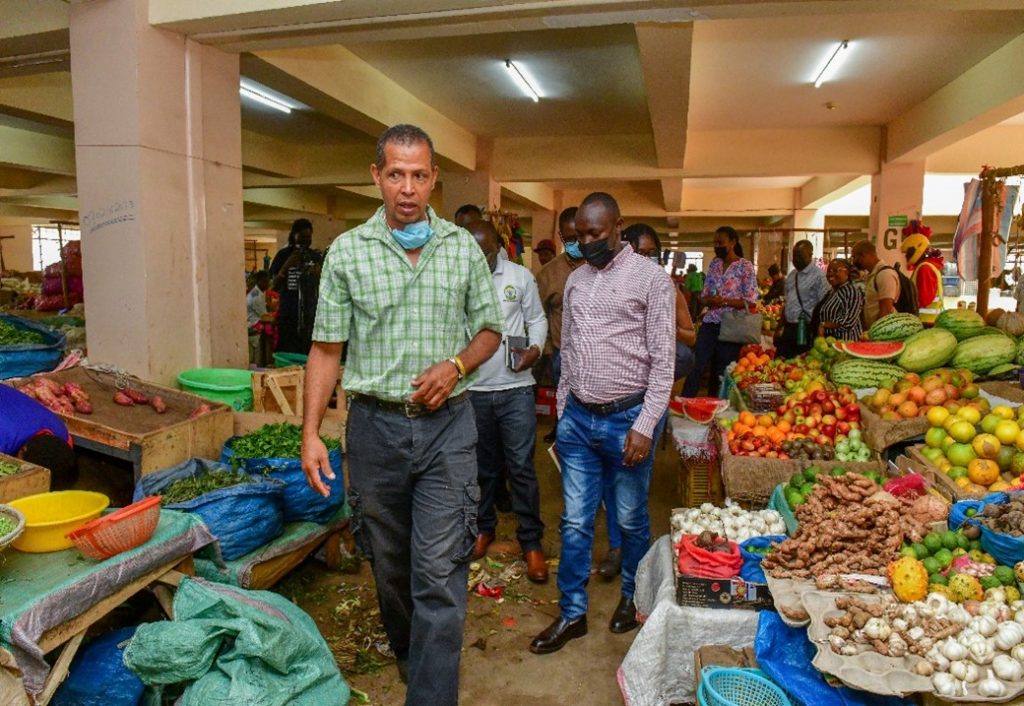
Site visit to market waste that are transformed into biogas and biofertilizers
The main objective of this training was to learn on best practices for waste management in Kenya that can possibly be replicated in Rwandan context. The delegation had the opportunity to meet with Kenya counterparts both public and private sector and, had chance to go on field to witness physically current waste management systems.
Training proceedings and key take away’s:
The five days training started with a meeting with Kenya counterparts including Ministry of Environment, Ministry of Industrialization, Trade and Enterprise Development, and Kenya National Environment Management Authority. These institutions presented their current mandate and enablers for environment and public health protection. Below are the highlighted policies that Rwanda could investigate to ensure sustainability of waste management.
• Green incentive policy, this is an ongoing initiative led together by the Ministry of Finance and Ministry of environment. This policy will define and promote green investment and related green incentives for waste management.
• Kenya Extended Producer Responsibility Policy, this is a policy that defines roles and responsibility of the producer and consumer for post-consumer waste recovery to protect the environment. This policy has defined five producer responsibility organizations (PROs). These are non-profit organization co-run by Government and association of manufacturers.
On the second day, the delegation met with Kenya Association of Manufacturers and Kenya Private Sector Alliance (KEPSA). In Kenya, private sector is the driving force in most of the sectors including waste management and encourage government to make changes either to support getting access to loans or to pass policies and strategies. Ongoing initiatives championed by private sector that are making changes include:
• Kenya Plastic Action Plan: this is a plan that KAM launched in 2019 integrating circular economy approaches into plastic waste management. This pushed the government to revise the existing waste management policy into formulating a national sustainable waste management to integrate circular economy. This policy was launched during the UNEA-5 meeting sometime early March 2022.
• Sustainable inclusive business: this is an initiative centered to people, planet, and profit. They integrate circular economy approaches for sustainable business and other initiative alleviating poverty. Three ongoing initiatives under this umbrella are Creating Opportunities Alleviating poverty through Sustainable Trade (COAST), Extended Producer Responsibility Organization (PRO) and Kenya Plastic Pact (KPP).
On the third and fourth day, the delegation attended site visits to three areas that are valorizing organic and plastic waste into organic fertilizers, animal feed, biogas production and, pellets production respectively. The team visited state of art Sanergy’s organic waste valorization plant that is using Black Soldier Fly at industrial scale to decompose organic materials and turned into organic fertilizers, briquettes, and animal feed. This plant has the capacity to treat 200 tones/day. The team also visited an ongoing initiative outside of in Ngong town to witness how organic waste collected from market are turned into biogas. Sanergy has developed a large-scale waste reuse solution that delivers commercial, environmental, health, agriculture, and energy benefits, providing developing cities an innovative circular economy alternative for organic waste management. Sanergy has proven the viability of its circular economy manufacturing model in Nairobi, both in a 3-year pilot and, in 2021, in its successful scale up to industrial production volumes. From 2018 to 2020, in its Nairobi pilot, Sanergy manufactured and sold 50T of insect protein and 1,300T organic fertilizer from 20,000T of organic waste.
The delegation also visited Mr. Green Africa Plastic Recycling Plant, which are buying, sorting, washing, and crushing different plastics by color and types to produce pellets or flex that are used as raw materials for producing other plastics. These are the treatment technologies that government of Rwanda must embrace to overcome challenges associated with pressures of waste to disposal site. The last day was for the delegation to return to the country and no other activities were anticipated on this day.
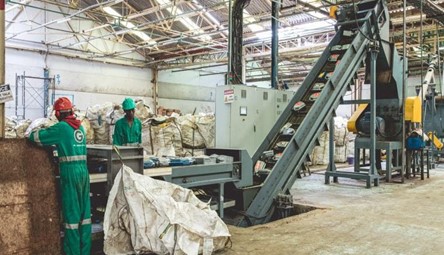
Mr. Green Africa, plastic sorting facility for pellet making.